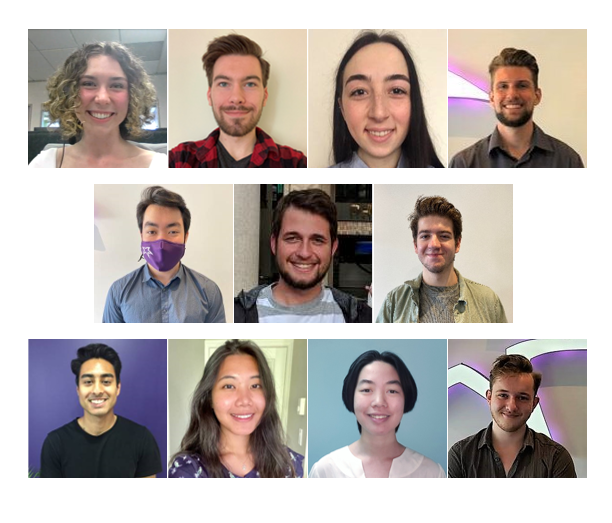
What Does the Ideal Medtech Co-Op Look Like?
StarFish Medical hires many engineering students for medtech co-op positions in our product design department. A question I get asked a lot is: “what does the ideal medtech co-op look like to you?” The answer is complex and can vary.
Everyone has their own strengths, but there are some general things that we look for across different families of skills and characteristics. Keeping in mind that it’s never a ‘one size fits all’ situation, here is what I say to someone who asks me what the ideal medtech co-op looks like:
Ideal Co-ops Fit the Culture
They are innovative in their approach to problems. They dig deeper and take initiative to do so. They are open about their knowledge, or lack thereof, and welcome accountability; they are responsible and honest. They are focused on learning and inquisitive. They want to get better and make StarFish Medical better too. They are a team player and enthusiastic about taking on challenges.
End-Goal Oriented
Ideal co-ops keep the user and patient in mind first and foremost and use these people to drive toward the end goals, not just the next milestone. For example, if asked to design a low-cost information collection system, they step back from the technical jargon and realize that all the user really wants is a pencil and paper.
Product Design Mindset
We want someone with a passion for product design. They are someone who sees things in their life and asks “why is it done that way?” – like the Engineer Guy on YouTube. This particular video is a great example of “I saw a thing in my life, I investigated how it works, and I’m fascinated by the innovation and the design choices”. Building up a mental catalogue of product design options and understanding why they work is a key strength for product designers.
Excellent Time Management and Communications
You might be thinking that anyone who can survive an undergraduate degree knows about time management. While it’s true that university will help you build a lot of time management and communication skills, a consulting environment adds a whole new factor to the game: an hourly budget. Our ideal co-op is efficient with their time, and capable of realizing when it’s time to stop, ask the right questions, and be vulnerable enough to say “I don’t know”.
Practical Experience
Obviously, someone who has worked in a medical product consulting environment is ideal, but that isn’t the only way to gain practical experience. Other work and school project experiences are also great, but not the whole story. Have you fixed your car or bike? Have you built a bird feeder or a garden box? These are all great experiences as long as you kept the “why” in mind. How did the bike designer consider reparability in their design? Why did you decide to make your garden box out of plywood instead of beams? Intentional design in anything from simple to complex projects will translate into learnings for next time, and that’s the type of progressive experience we’re looking for.
A Caution…
It can be easy to fall into the “I am all of those things” mindset when reading the above, but there is an obvious difference during interviews between co-ops who could be these things, if asked, and those who push to do these things on their own. The easiest way around this pitfall is to ask yourself, “what did I learn (maybe the hard way) in my practical experience?”, or “what insights can I bring to these skill sets?” and use that to gauge your action logic.
With That Being Said…
Don’t be afraid to apply! No one fits the mould perfectly, and we have never actually had an ‘ideal’ co-op work for us (sorry to break it to those ex-co-ops), just like we have never actually had an ‘ideal’ full-time staff member (apologies to my coworkers). ‘Ideal’ is something to aspire to, not a benchmark to hold yourself to.
Overall, we’re looking for the same thing from our co-ops as we look for in full-time employees: someone who drives to improve patient outcomes, makes our clients successful and makes StarFish Medical better. If you’re interested in a co-op term with us, you can find out more about our process here from someone with first-hand experience, and we encourage you to apply. We accept work placements throughout the year for exceptional students who have completed at least three years of their program. Please see our Co-op Placements page for more information. The deadline is generally very early in the academic semester before the upcoming work term (e.g., in mid-January for the May-August semester).
Nigel Syrotuck is a StarFish Medical Team Lead Mechanical Engineer and frequent guest blogger for medical device media including MD+DI, Medical Product Outsourcing, and Medtech Intelligence. He works on projects big and small and blogs on everything in-between.
